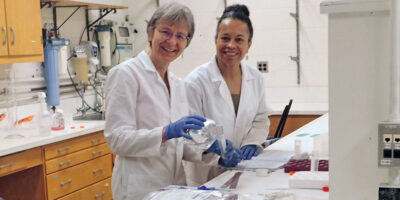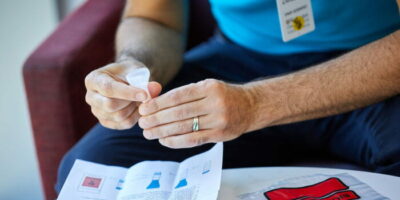Translational Science Benefits
Economic benefits (Commercial products)
Definition
Governmental permits based on intellectual property. Washington University defines a license as “a contract which awards to a party other than the owner(s) of the intellectual property the right to make, use, sell, or import products or services based on the owner’s intellectual property. Licenses may be awarded on an exclusive or nonexclusive basis and may provide for payment of license fees, milestones, royalties, or other income to the owner(s) of the intellectual property.” License agreements may be awarded for vaccines, drug deliveries, medical devices, imaging, software, algorithms, blood and tissue products, cellular and gene therapy, among others.
Rationale
Researchers develop new technologies to diagnose and treat disease, which may have possible commercial use. A license allows for exploration of applications for potential human benefit. License agreements also document use of intellectual property that leads to real-world impacts.
Guidance
Advice from authors on searching for information:
Start with the researcher to confirm whether a license agreement has been issued and contact the local campus unit that handles license agreements.
Resources & Data
Organizations, repositories, websites, and other sources where you can find more information:
Local
- Intellectual Property at Washington University. The Intellectual Property policies for Washington University are outlined on this page including definitions.
- Office of Technology Management at Washington University (OTM). The OTM offers a Technology Search feature to search for all available Washington University technologies. For more information, consult the office at your institution that manages technology transfer and commercialization.
General
- AUTM. AUTM is the nonprofit leader in efforts to educate, promote, and inspire professionals, throughout their careers, to support the development of academic research that changes the world. AUTM’s community is comprised of universities, research centers, hospitals, businesses, and government organizations around the globe.
- FDA Technologies Available for Licensing and Collaboration. The Food and Drug Administration (FDA) offers a listing of technologies developed by FDA scientists that are available for use.
- Licensing Opportunities at NCATS. NCATS offers a list of licensing opportunities that are available for further research, development, and commercialization.
Data Limitations
Challenges you may encounter while searching for information:
There is no single resource for searching for license agreements. Most large research universities have a campus unit that handles license agreements. Access to self-reported researcher or administrative/in-house data may be required to locate documentation.
Publications
Articles, books, and other publications in translational science using the indicator:
Colledge L. Snowball Metrics Recipe Book, 2nd ed. [Internet]. Amsterdam, Netherlands: Elsevier; 2014.
Case Studies

New Option for Treatment of Uterine Fibroids: Engineering Smart Therapeutics
Developing and testing a minimally invasive treatment option for women with uterine fibroids

An Update on New Therapies for Wolfram Syndrome
Revisiting previous work and exciting updates on a new clinic, drug trials, and license agreements

Expanding SARS-CoV-2 Testing with a Saliva-Based Test
A rapid, simple, and economical diagnostic test for COVID-19

